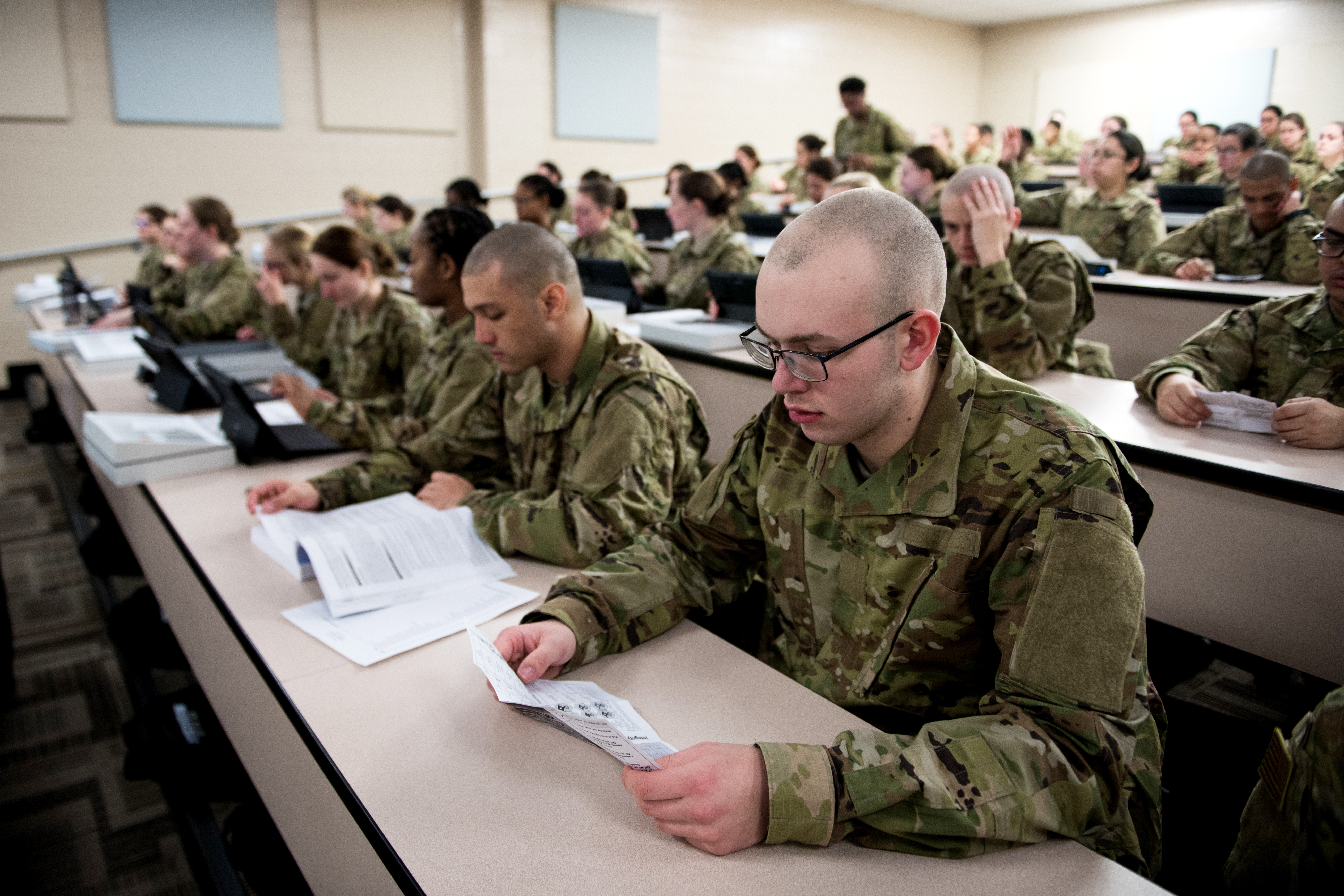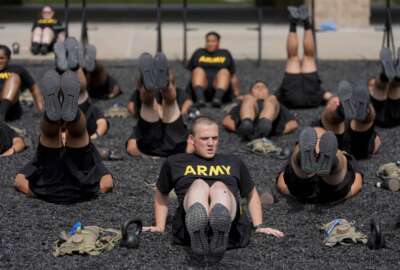Biden admin defends delayed citizenship policy for service members, ACLU pushes back
The Biden administration continues to defend Trump-era policy that delays service members’ path to citizenship, ACLU urges the court to strike down the policy.
As the Biden administration continues to defend a Trump-era policy that delays military service members’ expedited path to U.S. citizenship, the American Civil Liberties Union (ACLU) is urging the D.C. Circuit Court of Appeals to uphold its ruling that struck down the policy.
For decades, Congress has provided military service members the right to naturalize expeditiously by waiving a lengthy set of the typical requirements needed to obtain U.S. citizenship. The goal was to ensure service members had the full rights and privileges of citizenship prior to being deployed.
But in 2017, the Trump administration introduced a policy that delayed the process, requiring service members to wait for months before becoming eligible to start their naturalization process.
The ACLU filed a lawsuit on behalf of non-citizen service members in 2020 and won the case. And while the Biden administration initially asked the court to pause the proceedings and develop a new policy, it is now arguing for the reinstatement of original restrictions.
“It’s astonishing that the Biden Administration is pursuing the Trump Administration’s appeal, which seeks to overturn a court order restoring the expedited path to citizenship Congress guaranteed to non-citizen service members,” Scarlet Kim, staff attorney at ACLU, told Federal News Network a statement.
“The Trump Administration’s attempt to eradicate that path harmed both service members and the military. The Biden Administration’s defense of that position is as disgraceful as it is puzzling.”
In a legal filing submitted last week, service members laid out their case to the appeals court, explaining why the Defense Department’s recent appeal should be rejected.
The disagreement centers around the idea that the U.S. military has had a long practice of certifying that noncitizens serving during armed conflict had “served honorably” for purposes of naturalization without requiring a minimum time in service. The process enabled noncitizen recruits to receive their honorable service certification during basic training, which would allow them to become citizens by their first assignment.
Under the Trump administration’s policy, noncitizen service members had to meet minimum time-in-service requirements before being eligible for their honorable service certification and subsequent naturalization—180 days for active duty service members and one year for reservists.
The DoD has argued the policy aligns the criteria for granting honorable service certifications for naturalization with the criteria used for granting honorable discharges.
“Were the military to apply this same requirement to non-citizens seeking an honorable service certification for naturalization, non-citizens would have to wait at least a year—the same amount of time during peacetime and armed conflict—before seeking citizenship. That would nullify the expedited path to citizenship Congress created specifically for non-citizens serving during armed conflict,” service members said in the filing.
“[The Defense Department] kept their appeal in abeyance for three years on the basis that they have been reconsidering their policy options. But the statute gives them no options, because Congress did not authorize them to impose a minimum service requirement before non-citizens serving during armed conflict are eligible to apply for naturalization.”
A court briefing is scheduled to take place next month, and the court will likely hear oral arguments several month after that.
“On timeline for a decision, we can never really guess when the court will issue the decision, but hope they move quickly so that our clients can begin their lives as American citizens,” said Ally Harpootlian, the ACLU senior communications strategist.
Since 2002, the U.S. Citizenship and Immigration Services have naturalized over 170,000 military service members, at home and abroad. Since 2019, the agency has naturalized more than 40,000 service members.
There was a lull in 2019 and 2020, with USCIS naturalizing a little over 4,000 service members per year. The number of service members doubled in 2021 after the court struck down the policy. In fiscal 2023, USCIS naturalized more than 12,100 service members.
Philippines, Jamaica, Mexico, Nigeria and China are the top five countries of birth among naturalized service members, making up over 38% of the naturalizations since fiscal 2019. The next five countries are South Korea, Ghana, Haiti, Cameroon and Vietnam. The median age of service members who naturalized between 2019 and 2023 was 27 years old.
Two-thirds, or nearly 63% of naturalized service members are from the Army, including the National Guard and Reserves.
The Biden administration resumed defending the Trump-era policy as the military services are just coming back from a recruiting slump that has plagued the military for several years.
Copyright © 2025 Federal News Network. All rights reserved. This website is not intended for users located within the European Economic Area.







